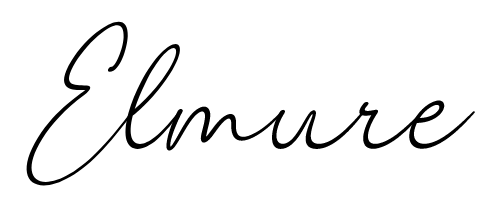Book Recommendations from Sam Harris
Sam Harris is a neuroscientist, philosopher, and public intellectual known for exploring consciousness, morality, and the boundaries of belief. His recommended books reflect this diverse curiosity—from evolutionary biology to mystical experience, from rational atheism to emotional introspection. These titles probe the nature of behavior, the structure of reality, and the complexity of human suffering and transcendence. Whether you're navigating difficult ethical questions or seeking insight into your inner life, Harris’s reading list offers both challenge and clarity. Here are the books he finds most impactful.
Books Sam Harris Recommends

*Behave* is a sweeping masterwork on why humans act the way we do—from neuroscience to sociology, genetics to culture. Sapolsky dissects behavior with stunning clarity, offering a time-reversed exploration of decision-making, from milliseconds before an act to millennia of evolutionary history. Harris often references this book for its depth and intellectual honesty. It’s both encyclopedic and readable, filled with insight into aggression, empathy, and everything in between. Essential for anyone interested in human nature and how biology intersects with ethics.

Deutsch argues that human knowledge can grow without bounds—if we remain committed to reason and critical inquiry. *The Beginning of Infinity* explores the power of good explanations, the potential of scientific discovery, and the dangers of dogma. Harris praises this book for its rigorous optimism and bold vision of progress through understanding. It's a deeply philosophical and scientific look at what it means to live in an explainable universe. This is a mind-expanding, worldview-shifting read that will stay with you long after the final page.

Hitchens’s fierce polemic against organized religion is a cornerstone of the modern atheist movement. With wit, erudition, and fire, *God Is Not Great* challenges faith-based systems and argues for reason, science, and secular ethics. Harris, a fellow 'New Atheist', frequently credits Hitchens for his moral courage and rhetorical brilliance. This book is more than critique—it’s a passionate defense of intellectual freedom and human dignity. Whether you agree or disagree, you won’t read it without feeling shaken and provoked.

*Hitch-22* is the riveting memoir of Christopher Hitchens, chronicling his political evolution, literary career, and philosophical battles. It’s as bold and unfiltered as the man himself—filled with sharp memories, global observations, and a deep love for language and liberty. Harris admires this book not only for its personal honesty but for its rich political history and intellectual depth. It’s both a celebration of life and a reckoning with the costs of integrity. Fans of Hitchens—or fearless thought in general—will find this unforgettable.

Gilbert's delightful and insightful book explains how the brain misjudges what will make us happy—and why our predictions often fail. Drawing from psychology and neuroscience, *Stumbling on Happiness* reveals just how strange and surprising our emotional lives really are. Harris praises this book for making science accessible while uncovering profound truths about human fulfillment. It’s clever, funny, and filled with surprising takeaways. If you’re trying to understand happiness with a scientific lens, start here.

In *Humiliation*, legal scholar William Ian Miller explores one of the most painful and universal human emotions. The book is raw, cerebral, and deeply human—dissecting the anatomy of shame, social failure, and status. Harris recommends it for its fearless look at the darker corners of the psyche. It’s intellectually rigorous and emotionally uncomfortable, but incredibly enlightening. A unique and challenging exploration of the social mind.

*The Anatomy of Disgust* dives into the evolutionary and cultural roots of revulsion—why we’re grossed out, and what that says about us. Miller tackles everything from hygiene to morality, showing how disgust shapes our identities and social boundaries. Harris values this book for its ability to turn an everyday emotion into a profound philosophical inquiry. It’s strange, sharp, and loaded with anthropological insight. Perfect for readers fascinated by emotion, ethics, and the unconscious mind.

This poetic memoir charts Henry Shukman's journey from trauma and depression to spiritual awakening through Zen meditation. *One Blade of Grass* is lyrical and honest, combining psychological struggle with mystical experience. Harris recommends it for its grounded, non-dogmatic portrayal of transformation. It’s part memoir, part meditation, and fully human—filled with doubt, effort, and grace. If you're exploring meditation beyond technique, this is a heartfelt place to begin.

*In Cold Blood* is Capote’s haunting true crime masterpiece—a deep dive into the psyche of two murderers and the small town they shattered. Harris recommends it not just for the narrative brilliance but for the chilling psychological portrait it presents. The book is precise, lyrical, and morally complex, raising questions about justice, empathy, and evil. It reads like a novel but hits like real life. A gripping examination of violence, humanity, and storytelling.

While critical of religious doctrines, Harris still advocates reading primary texts—including *The Quran*—to fully understand the ideas shaping millions of lives. The M.A.S. Abdel Haleem translation is clear, scholarly, and widely respected for its accuracy and readability. Harris has emphasized the importance of engaging directly with scripture rather than relying on secondhand interpretations. Whether you're exploring Islam intellectually or seeking comparative insight, this edition offers a balanced and accessible entry point. It's essential reading for understanding the modern world’s religious and political landscape.
